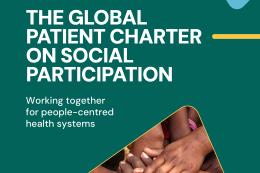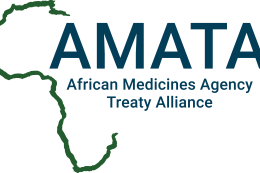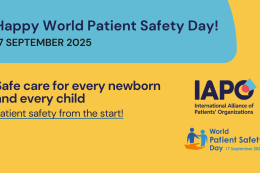Meeting new board members: Ya Hsin Wang
Tuesday, 14 August 2018

We welcome Ya Hsin Wang, Secretary General of Psoriasis Association Taiwan and the executive director of Taiwan Alliance of Patients' Organizations, to our Governing Board starting from August 2018. Ya Hsin answered a few questions about her work, what she brings to IAPO and why she is involved in patient advocacy work.
Why are you involved in the work that you do?
Ever since I was young, I have suffered from psoriasis and it brought me much pain for over 22 years. However, my patient journey allowed me to develop deep sympathy for other suffering patients. As a result of this, ten years ago, I joined the volunteers’ team of Psoriasis Association Taiwan as I had the will to serve other patients with the same suffering. From these experiences, I learnt that the patients’ voice needs to be respected more in our healthcare system. Therefore, for the last 10 years, my partners and I continuously do our best to advocate for patients’ rights through our patients’ organization.
Our chairman, Yi-Mou Ko, who is also a psoriasis patient, established Psoriasis Association Taiwan (PAT) as he is also a psoriasis patient triggered by a serious car accident when he was a graduate student in the USA. Considering the lack of enough and right information for patients in Taiwan, PAT was set up to fill this gap. We exist to provide more information and guidance and seek better treatments for patients with psoriasis.
What are some of the challenges facing people within your area of work?
In Asia, we have come to find that many patients are very shy and not willing to express their real feelings and expectations about treatments. Its also very clear that there is a lack of understanding of the basic concept of patients’ rights and responsibilities. For example, psoriasis and psoriatic arthritis often cause stigma as well as depression to patients. Under the background of the oriental culture, the situations usually become worse and worse, especially patents refuse to face their disease and give up any possible successful treatment for themselves. Therefore, approaching patients and their relatives and advising them to accept right treatments is one of the big challenges.
Why did you join IAPO?
Asia is a big continent with many issues faced by patients both in developing and developed countries in the region. From my observation, there are some common challenges across global patients’ organizations. For example, the process of implementing and applying the concept of patient-centeredness to the decision making of the healthcare systems in each specific country. I joined IAPO because I hope to be more empowered, learn more and have something to contribute towards the global community with many excellent patients’ groups.
Also, we believe that unity is strength, therefore, we decided to join IAPO—the big family of patients’ group all over the world. IAPO creates awareness of diseases and impact on patients’ unmet needs, IAPO especially ensures voice of patients can be heard. All these facts make IAPO mission very meaning to me.
What are your expectations as you join the IAPO Board?
As I join the IAPO Board, I expect that I can use my ability and experiences to contribute to the cause of ensuring that health systems are patient-centered. In addition, I also hope to learn a lot and have more knowledge to help patients with pain by sharing good practice among board members. I especially look forward to advancing the cooperation and links for network of patients’ groups in Asia as well as in oriental countries. I am convinced that we could experience great achievement if we integrate the power of patient groups. I believe our efforts, can enhance the framework of the patient-centred concept and overcome the challenges that patients that face. Most importance of all, the engagement of our patients’ groups globally will be a key solution to the sustainability of healthcare systems for many countries.
What’s your vision for patient-centred healthcare over the next few years?
My vision for patient-centered healthcare over the next few years is to see the implementation of the main values of it represents through the global cooperation of us as stakeholders in the healthcare system value chain (government, healthcare providers, patient groups, pharmaceutical companies, etc..). Additionally, I believe that the strengthening of patients’ evidence, application of better health technology assessment and methodology to different healthcare systems, then finding the best solution to reduce the Budget Impact Analysis and promoting quality of life are supposed to be the most important vision for patient-centred healthcare for our next generation in the near future.



